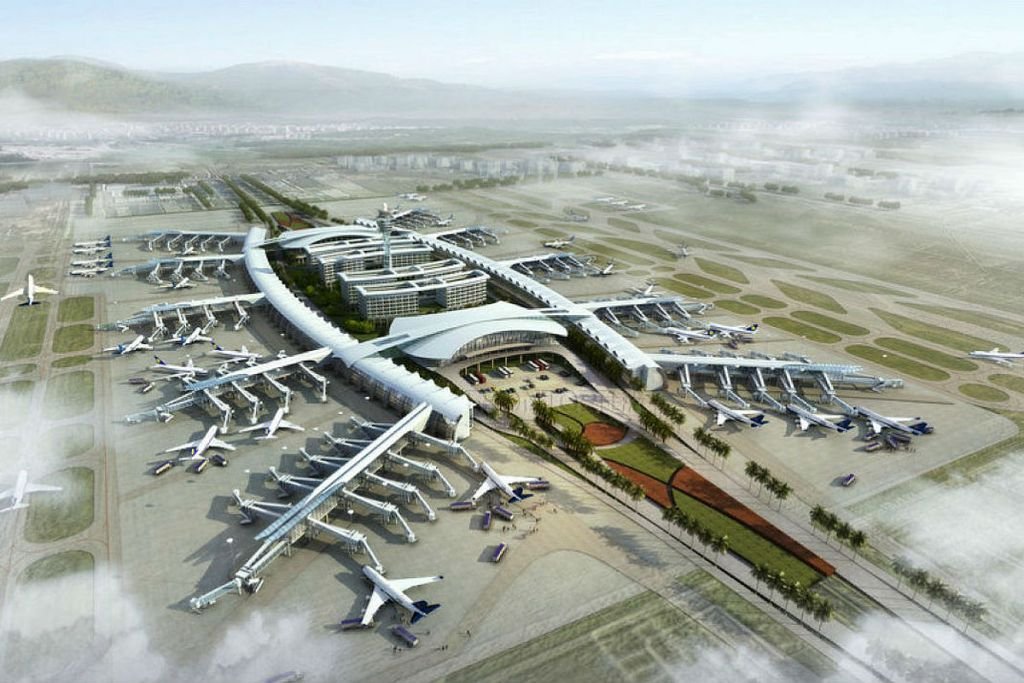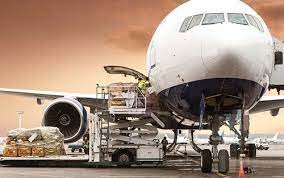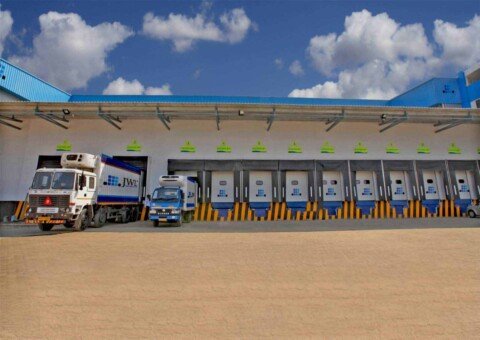After accomplishing the feat of delivering life-saving drugs and essential commodities worldwide in response to the COVID-19 pandemic, the Indian air cargo industry is yet again prepared for the biggest challenge of delivering the long-awaited COVID-19 vaccines regionally and globally. The COVID-19 vaccine is the most anticipated product and its delivery and distribution programme will be massive and elephantine, and the industry is already expecting a massive upswing in air freight demand keeping in mind the urgency of the situation, as vaccines complete phase III trials. Airports and airlines are now proactively and aggressively working towards accomplishing targets as select countries start rolling out vaccines.
Ritika Arora Bhola
While the world still awaits the valuable drugs to get ‘Green Nod’ from the central governments, leading global pharma manufacturers like Pfizer and BioNtech, as well as Moderna and AstraZeneca have been in news recently for their COVID-19 vaccines had shown brilliant efficacy rates. In fact, the two companies have already received emergency approvals and vaccine is set to be given first to the front-line health workers, care home workers and those aged over 80. Now all the eyes are on the logistics sector to assess the readiness for distribution in India and worldwide.
No doubt, cargo communities have started preparing for this biggest event. Surely, it will take considerable planning and effective coordination between airports, airlines and logistics companies to take up such a high-stakes challenge.
In a recent report, IATA highlighted a very important aspect of vaccine distribution to billions of people. There needs to be an adequate distribution model from the original point to the complete end-to-end network.
The report says, providing a single dose to 7.8 billion people would fill over 8,000 Boeing 747 cargo aircraft, but the actual figure will depend on many assumptions that are yet to be determined, some vaccines might require a second dose. Ancillary items such as syringes, swabs or further treatments may also add to the traffic flows.
Another important aspect that should be considered is how much of the distribution will be done by the surface transport, acknowledging the proximity of some populations to the manufacturing sites.
Temperature integrity and last-mile delivery will remain major aspects behind the difficulty of shipping the COVID-19 vaccines. However, let’s take a look at major Indian airports who claim to be ready and preparedness for this biggest event of 2021.
Delhi International Airport Ltd (DIAL)
DIAL has been undoubtedly, proactively working and remained a frontline warrior in fight against COVID-19 pandemic since the beginning, contemplating its strong stakeholders’ engagement and collaborative approach. The airport is well-equipped with the required infrastructure, services and commitment to handle COVID-19 vaccines distribution.
Soon after the announcement of nationwide lockdown in March 2020, Delhi Airport established a dedicated warehousewithin the shortest period of seven days to meet nations’ emergent need for channelising and procuring the imported essential medical supply pan India, supporting government’s project lifeline ‘Udan.’
Videh Kumar Jaipuriar, CEO, DIAL underlines some of the important recent developments at the airport and tells how the airport is yet again fully prepared and geared up for phase-2 fight against this pandemic to facilitate handling and distribution of COVID-19 vaccines as soon as it is launched.
(Box with Pointers)
- Delhi Airport is the largest cargo hub airport in the South Asia region, with two integrated cargo terminals having annual cargo handling capacity of 1.8 million MT, scalable to 2.3 million MT.
- The cargo terminals are equipped with state-of-the art handling equipment, advanced screening systems, efficient storage and processing facilities, paperless processes etc., providing efficient cargo handling services for international as well as domestic cargo.
- Both the cargo terminals has world-class infrastructure with GDP certified temperature-controlled facilities for handling temperature sensitive cargo. The temperature-controlled cargo facilities have a capacity to handle over 1.5 lakh MT per annum. These facilities have state-of-the-art temperature controlled zones with separate cool chambers ranging from +250C to -200C.
- Also both the terminals are provided with adequate number of charging points to handle temperature-controlled containers.
- There are cool dollies at airside for movement of temperature sensitive cargo to and from Terminals to the Aircrafts to ensure unbroken cool chain.
- Delhi Airport is also working on customised solutions to handle cargo at other temperature ranges as required.
- There are processes being put in place in association with clearing agencies for express movement of vaccines to and from the airport. 24×7 operations of the cargo terminals ensure that the services are available round the clock for uninterrupted supply chain and efficient operations.
- There are separate dedicated gates at the terminals for fast movement of vehicles carrying vaccine in and out of the airport. There is also a truck slot management system at the cargo terminals where facility is provided to pre-book the arrival of trucks at the terminal.
- In terms of airside infrastructure, Delhi Airport is the first and only airport in the country to have 12 dedicated freighters parking bays, providing ample capacity for the airlines to move cargo to and from the airport. In fact, cargo apron is capable to do three ‘Nose Load’ operations seamlessly at single point of time.
- In line with MoCA’s vision to create metro airports as transshipment hubs, Delhi Airport has set up a dedicated ‘Transshipment Excellence Centre’ spread over an area of 6,500 sq mt at the airside for convenient and efficient movement of transshipment cargo. This facility will help fast movement of vaccines through transshipment.
- While Delhi Airport provides highest airline connectivity in the country to different parts of the world and within India, it will play a critical role as a transshipment hub to connect under-served countries/ regions to rest of the world.
- Delhi Airport is also advance in using technology for fast movement of vaccines from the airport. Delhi airport has been first to launch the India’s first ‘QR code-based e-Gate pass facility’ for delivery of import cargo, thereby making paper documentation process automated and also reducing human interface.
- Airport is also working along with other stakeholders in the supply chain including Pharma companies, airlines, temperature-controlled facilities suppliers, forwarders, temperature-controlled transport service providers for efficient, reliable, uninterrupted services to the end users.
- Special focus is being given to provide trainings to the resources for efficient and special handling of the COVID-19 vaccines.
GMR Hyderabad International Airport Ltd (GHIAL)
Located in the epicenter of the vaccine production region in the country, GMR Hyderabad Air Cargo (GHAC) is all set to play a pivotal role in the distribution of vaccines through state-of-the-art time and temperature-sensitive distribution system. The airport is a key stakeholder in the global vaccine logistics with relevant facilities such as modern temperature sensitive pharma and vaccine storage and processing zones. S G K Kishore, Executive Director- South & Chief Innovation Officer, GMR Airports,briefs up on the efficient and reliable working processes. Vaccine shipments are being given top priority at the airport. GHAC also has dedicated staff for quick handling of vaccines.
(Box with Pointers)
- GHAC has India’s first Pharma Zone with WHO-GSDP (World Health Organisation – Good Storage and Distribution Practices) certified facility with end-to-end temperature-controlled dedicated Pharma Zone.
- GHAC terminal is also accredited with an EU-RA3 (European Union – Regulated Agents-3) certification having dedicated warehouse for exports, imports, domestic outbound and domestic inbound.
- The terminal is equipped with various temperature zones from -20 to +25 degree Celsius and with state-of the-art equipment and cool containers to cater to product specific requirements.
- GHAC provides a unique Cargo Village ecosystem complete with banking facility along with a Cargo Satellite Building (CSB) which provides space for various regulatory authorities and stakeholders like drug control, quarantine office, etc. and office/warehouse space for freight forwarders.
- GHAC has wide body cargo apron facilities for handling regular freighter operations as well as charters. The Cargo Apron is only 50 meter away from the cargo terminal, adding a competitive advantage of any temp-sensitive vaccines to be transported till the cargo terminal very quickly after the door of the aircraft is opened, thereby minimising the ramp exposure timing and ensuring quick turnaround of the aircraft.
- Besides, GHAC has recently launched the latest Cool Dollies- which is a 2 to 80C and 15 to 250C mobile refrigeration unit for airside transportation designed to eliminate any temperature excursions and to maintain the unbroken cool chain. This is available at the airside apron to be utilised as soon as vaccines are offloaded from an aircraft for transportation till Cargo Terminal Cold Storage section. The cool dolly can accommodate around 5 – 7 MT of cargo in one go.
- GHAC houses all types of active and passive cool container stocks stored at Hyderabad and offers well-trained and skilled workforce to handle these containers for facilitating vaccine movements at various temperature ranges.
- With the help of the large stocks of various Cool Containers, GHAC can facilitate services for the break-down of large import consignments for domestic distribution and load the smaller batches in various cool containers for further shipping to different destinations in India by air or by trucks.
- GHAC has also empanelled various professional Cool Trucks Service providers, which can be leveraged for quick distribution nationally based such requirements.
- GHAC can also cater to the direct delivery of pre-cleared vaccine shipments.
- To promote an end-to-end unbroken cold chain solution, a dual X-ray with the dimension of 180cmx180cm is available at the Pharma Zone. This large tunnel X-ray omits the need to open all containers for regulatory compliances thus eliminating any break in the cold- chain integrity.
Mumbai International Airport Ltd (MIAL)
MIAL, which is India’s largest gateway for pharmaceutical import and export is all geared up to facilitate the shipments of leading pharmaceutical brands for COVID-19 vaccination in India. The airport is committed to offer a seamless, safe and time-bound supply chain to COVID-19 vaccine movement with its state-of-the-art and Asia’s largest airport-based ‘Export Pharma Excellence Centre’ holding a one-time capacity for cargo of multiple freighters, complemented by a trained, experienced, dedicated task force.
Mumbai’s Chhatrapati Shivaji Maharaj International Airport (CSMIA) is also expected to play a pivotal role in storing and distributing the vaccine in India as it is home to Asia’s largest pharma-dedicated import cold zone, which has a cold storage capacity of 30,000 tonnes.
Post-lockdown, the air cargo at CSMIA saw a steady growth in air freight volumes with 11 per cent month-on-month increase in October 2020 and a 190 per cent increase in total, as compared to April 2020. The performance in the month of October 2020 rose to 82 per cent of the pre-COVID-19 business. Additionally, flight movements in October 2020 increased by 31 per cent month-on-month and 1273 per cent when compared to April 2020. The major commodities which contributed to the air freight growth at CSMIA were pharmaceuticals, engineering goods, agro products and electrical/electronic items.
“Despite the outbreak, this phenomenal growth has been supported by schedule operators, ad-hoc charters, logistic partners, and regulators. CSMIA air cargo currently caters to over 60 airlines connecting to more than 400 international destinations and 60 domestic cities. The growth in tonnage and capacity has been consistent month-on-month since the impact of COVID-19 and there is an optimistic growth trajectory that will continue for the rest of FY21 as well,” says Manoj Singh, Senior Vice President and Head of Cargo, MIAL.
(Box with Pointers)
- With the well-established time and temperature sensitive handling system, real-time temperature updates, trained and experienced work force and stringent security arrangements, CSMIA is committed to supporting the pharma and air cargo community for the efficient and seamless transportation of the COVID-19 vaccine across all borders.
- The airport will also be offering flexible slot for ad-hoc charter operations.
- CSMIA will also work towards providing round the clock green channel facility with dedicated truck docks, X-ray machine and ULD Buildup workstation as well as deploying Key Account Managers for continuous monitoring of Vaccine operations.
- Additionally, the airports’ ‘Cooltainer’ will play an important role as it can offer 2 to 80C temperature-controlled transport between the Export Pharma Terminal and the aircraft.
- A significant portion of the COVID-19 vaccine is expected to be transported by air owning to its speed and reliability. The imported vaccines might require a temperature range generally between 0 to -200C, while some of them may need a range of -700C.
- Also, the exports need to be transported at the conventional 2 to 80C temperature range. Additionally, the vaccine imports received on active containers need to be maintained under controlled temperatures till the point of delivery to the consignee.
- The airport is working diligently on introducing fast track procedures for COVID-19 vaccine movement with regulatory support and airside management. Imported vaccine consignments will be directly delivered to the consignees from the airside for optimal temperature management and dwell time reduction with prior special approvals from regulators.
- CSMIA plans to deploy a dedicated COVID-task force to facilitate advance planning and collaboration between the airport and all stakeholders in this process such as the Airlines, Ground Handlers, Supply Chain partners, Regulatory and Government bodies, Vaccine manufacturers & distributors amongst others.
- The taskforce team will be offered trainings and workshops for advanced preparedness in Vaccine handling. The team will be trained to handle all types of active containers such as Envirotainer, C-Safe, va-Q-tec and Softbox received in imports and exports. Further, they will extend all efforts to optimize temperature management and reduce the dwell time for Vaccine movements through co-ordination with all the stakeholders.
- Round the clock Customer Service Cell will be dedicated for COVID-19 vaccine EXIM consignments in order to address customer queries, pre-alerts and status updates.
- The airport has state-of-the-art facilities, such as Asia’s largest temperature-controlled ‘Export Pharma Excellence Centre’ run by our business partner ‘Cargo Service Center’. The facility spread over an area of 4,000 sq mt has an annual handling capacity of 350,000 tonnes, a total of 140 ULD storage positions and 50 power outlets for charging Active containers.
- Additionally, the facility also hosts 06 dedicated truck docks for round the clock cargo acceptance & quick turnaround of trucks, 02 release gates for ULD exit, 02 X-Ray machines, 06 Cold chambers offering 2 to 80C storage for 12 main deck ULDs, CCTV Surveillance and electronically-monitored temperature management system with alarm alerts and power backup.
Bangalore International Airport Ltd (BIAL)
Next in the line is India’s leading world-class airport BIAL, which also operates Kempegowda International Airport (KIAB) in Bengaluru. According to Satyaki Raghunath, Chief Strategy and Development Officer at BIAL, the airport is well-equipped to handle the storage of COVID-19 vaccines whenever it is made available. At present, cargo volumes at KIAB/BLR airport are gathering momentum, with international cargo leading the recovery, following a prolonged slump due to the pandemic.
According to Raghunath, in the first two quarters of FY2020-21, between April and September, BLR Airport cargo terminals processed 131,603 MT of freight. The cargo processed in September was 32,449 MT, a growth of +0.3 per cent, against same period last year, making BLR Airport the first metro airport in India to record growth in freight, compared to the same period last year. September 2020 witnessed a +4.5 per cent growth in international cargo, of which export cargo grew by +7.6 per cent.
In October, the airport processed 34,339 MT of cargo, recording a 26-month high in tonnage. During the same period, BLR Airport witnessed a highest-ever domestic outbound tonnage of 8,117 MT, largely driven by e-commerce shipments.
“In the next 18 months, we expect cargo to reach pre-COVID-19 level post which we expect to see further growth,” says Raghunath adding that the airport is BLR Airport is fully equipped to handle all kind of pharmaceutical products including the COVID-19 vaccines that are being developed.
(Box with Pointers)
- The cargo terminals at BLR Airport are well-equipped to handle the storage of various types of pharma products. The cold storage facilities are equipped to manage upto -250C.
- Our dedicated cold zone AISATS CoolPort has the capacity to handle 40,000 MT annually, with temperature zones ranging from -25 to +250C.
- Menzies Aviation Bobba Bangalore, too, has a cold zone, measuring 850 sq mt with the capacity to handle 20,000 MT with specific temperature zones (20 ULD pallets at 15 to 250C and 2 ULDs at 2 to 80C.
- When India is ready to distribute the COVID-19 vaccines, we would coordinate with stakeholders and the government to ensure that storage and distribution are managed efficiently.
- The biggest value-added service that we provide our customers at BLR Airport is that there is no temperature excursion in our CoolPort facility. This essentially means that the required temperature for certain pharmaceutical vaccines and medicines is maintained not only in storage, but also in the pre-loading area, right up to the time the cargo is loaded onto the aircraft.
- We have had exporters from the pharmaceutical side using our facilities from Goa and from Vizag, besides several other places from South India. We are seeing a growth on the biotech front. Though the volumes are small, that segment is seeing a steady growth rate.
- We are the first airport in South India to house a fully operational Drug Control Lab, which incidentally is only the second and the largest such facility in the country. Testing of all export and import of pharmaceuticals that is required by customs is therefore done at the cargo terminal itself.
- In addition, the CoolPort has also been awarded the GDP certification for WHO mandated standards.
- With the Drug Control Lab within the facility, our clients need not have to go to a city laboratory for the necessary testing as required by customs. This has enabled shippers’ considerable savings in transportation cost and time.







